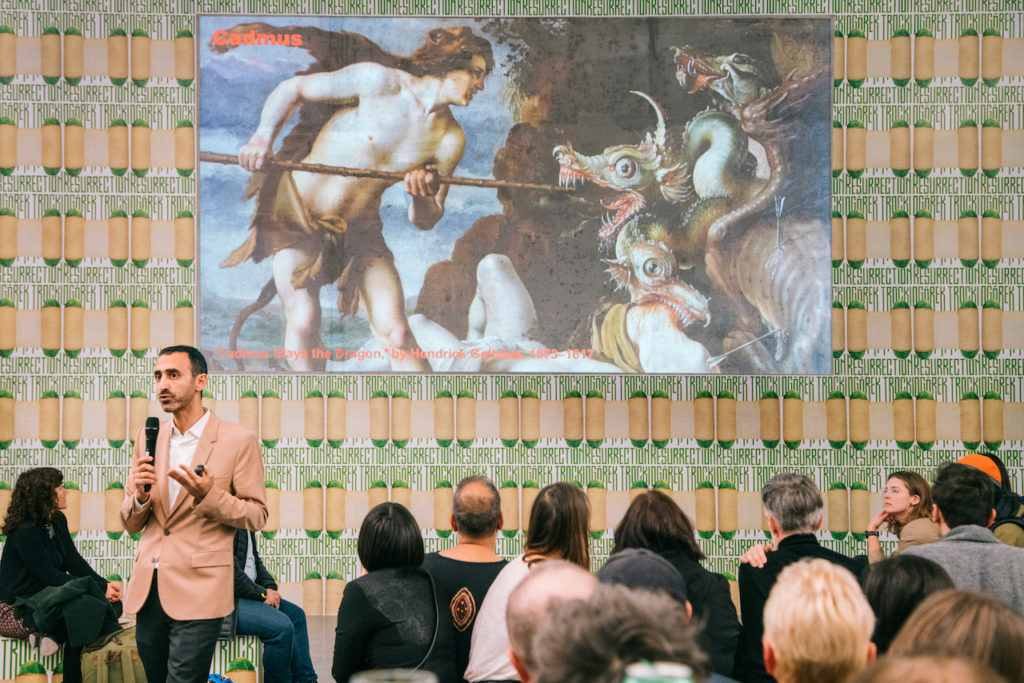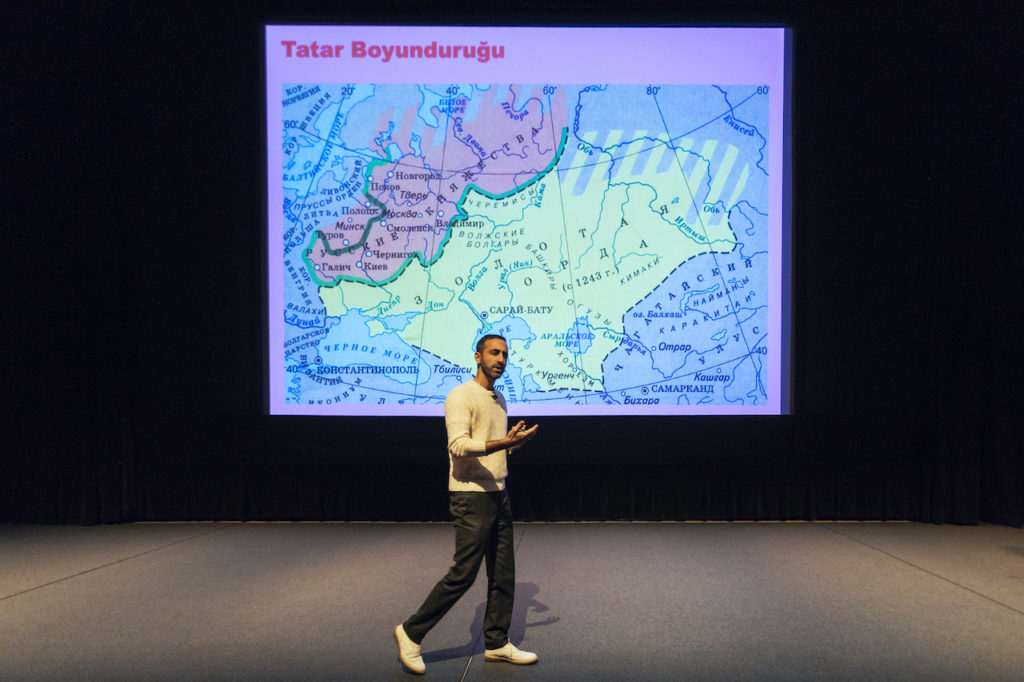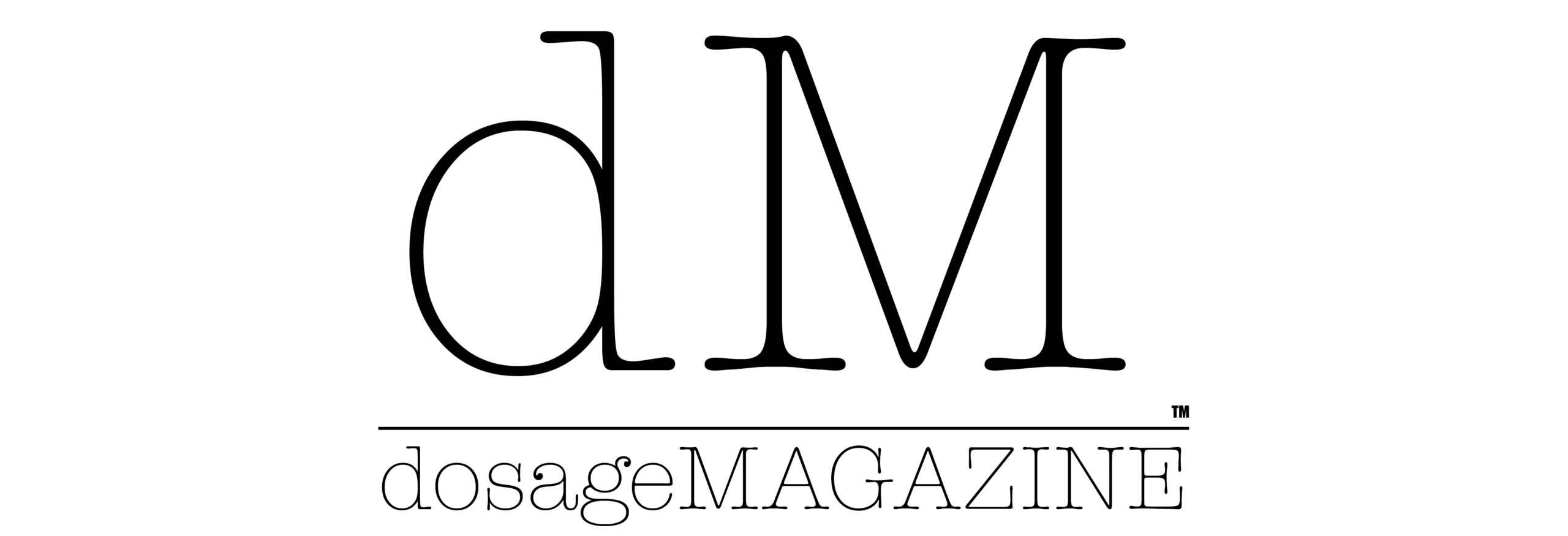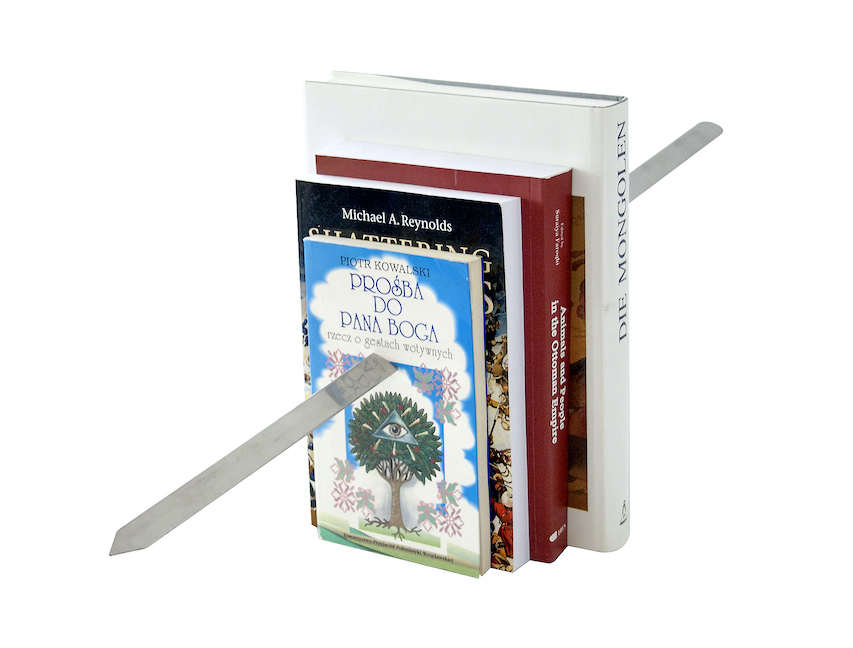Sometimes, it seems as if faith has become the most offensive f-word there is. Even I, who double-majored in English and Religious Studies, bristle at the mention of religion. Yet, Slavs and Tatars, an artists’ collective based in Berlin, Germany which has come to the United States as part of a residency at Haverford College, has a view of religious history that has inspired me to think differently about the past’s importance to the present.
As I sat in the audience on a Wednesday night, listening to the Slavs and Tatars lecture, Al-Isnad or Chains We Can Believe In, I found myself rethinking the narrative that the secular has surpassed the sacred. What would happen if instead of looking at the past as an impediment to progress, we saw it as an essential part of our ongoing evolution? Al-Isnad or Chains We Can Believe In presents a perspective in which history is circular and cumulative, as opposed to linear and dwindling. Slavs and Tatars operates from the vantage point that only by looking at the past can we move forward into the future in an empowered and authentic way. The lecturer was informative, insightful, and hysterical. His lecture challenged the audience to think about faith not as something to be squelched but as something from which modernity can salvage important elements. I’d never thought about it, but minimizing the contributions of our predecessors can render us oblivious to the lessons of the past.

Wednesday night’s lecture forever changed my perspective on the past, something that I know will have a lasting impact on me, personally and professionally. In an instant, I became a lifelong fan of the Slavs and Tatars collective and I’m excited to see how they will use their residency in Philadelphia to embark on a number of creating undertakings, including lectures, art exhibitions, educational initiatives, and literary projects.

Their work in Philadelphia has been funded by The Pew Center for Arts and Heritage and made possible through the collaborative efforts of Haverford College’s Hurford Center for the Arts and Humanities, Twelve Gates Arts, and the Philadelphia chapter of the Council on American-Islamic Relations (CAIR-Philadelphia).
Al-Isnad or Chains We Can Believe In marks the inaugural event of Slavs and Tatar’s Philadelphia-based residency. The next event, in April, will be supported by CAIR Philadelphia. I can’t wait to attend!

